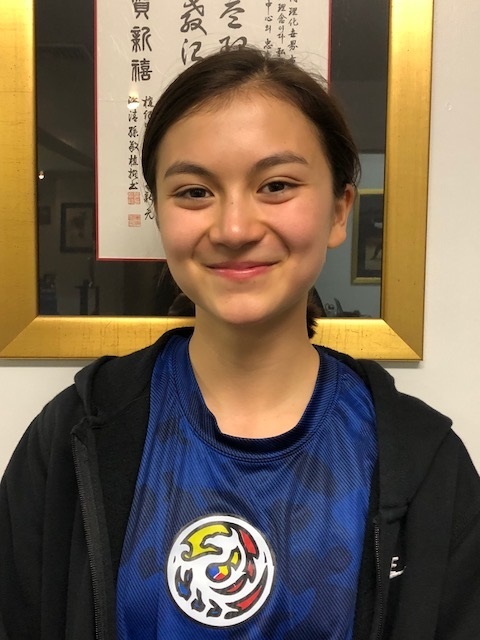
“Conquer” and My Taekwondo Journey
When Grandmaster Yoo asked me to make a speech at the end of my last SUSA class before leaving for college, I felt inundated by emotions and reflections. How could I adequately speak about my Taekwondo experience, one that has touched so many aspects of my life? Taekwondo has helped me to manage my anxiety, cultivate positive energy, and learn from challenges and failures. Taekwondo has shown me how to become more in-tune with my body and mind, how to collaborate and build relationships with other people, and how to cultivate self-trust and respect.
In light of what I have written above, there are so many points I want to discuss here, but I have decided to focus on one teaching that I will carry with me for the rest of my life—the concept of “conquer.”
As a Red/Black belt, I learned that it is impossible to conquer anything. Life and Taekwondo are journeys of continuous learning and growth; in other words, you can never fully master something. As a perfectionist, I sometimes find myself unhappy with my work or efforts, which can lead me down an unproductive path of self-criticism. Learning about “conquer” forced me to reflect on this behavior and realize that not only are errors normal, but they are critical to growth. By letting go of the desire to perfect or conquer an endeavor, I became more receptive to new ideas and challenges. I became drawn to Kumyedo, sword-fighting, because of its repeated practice and slow progression. I now find excitement in knowing that I will never stop learning—I can only work to improve myself.
This lesson has been critical to my growth as a student in all other areas of my life, especially in music. I began studying classical marimba performance when I was a Bodan belt, and enjoyed the similarities between music and Taekwondo practice. Like Taekwondo, marimba
requires physical and technical ability in conjunction with concentration and energy regulation. After long rehearsals, I felt energized knowing that I was working towards improving my performance, not conquering the piece.
The “conquer” principle has proved to be especially important when I face large obstacles. For instance, at the beginning of the pandemic, I came off of preparing for a large performance of a piece called Restless. I hadn’t been monitoring my physical state carefully enough, and developed blisters on my hands from over-practicing. These blisters prevented me from playing for months, and I was initially discouraged and unsure of what to do. My music teacher encouraged me to be creative, and I considered the many lessons that Taekwondo has taught me. “Conquer” showed me that there is always more to learn, and always a new angle to look at a challenge from. With this in mind, my teacher and I worked on a new practice regimen, one where I would sing the piece instead of play it. This gave me an opportunity to work on shaping the piece’s musical phrases, not constrained by the physical aspects of the piece. In addition to “conquer,” applying the um and yang energies to the piece’s phrases and persevering through these new practice sessions was so important in this learning experience and in my growth as a musician and person overall.
Looking back, I have been so fortunate to have studied with Grandmaster Yoo, Master Drew, Master Chun Shim, Master Lim, Master Oh, Master Kim, Master Joe, Master Shin Min, and Master Lee, as well as Melanie, Teresa, Lisa, and all of my Taekwondo seniors and peers. I have learned so much from all of them and thank them for everything.
As this part of my Taekwondo journey comes to a close, I feel grateful for and excited about the new experiences and challenges to come. I will carry Taekwondo with me and
remember that there are always opportunities to grow so long as we open our minds to seek them.
— by Sayako Aizeki-Nevins
